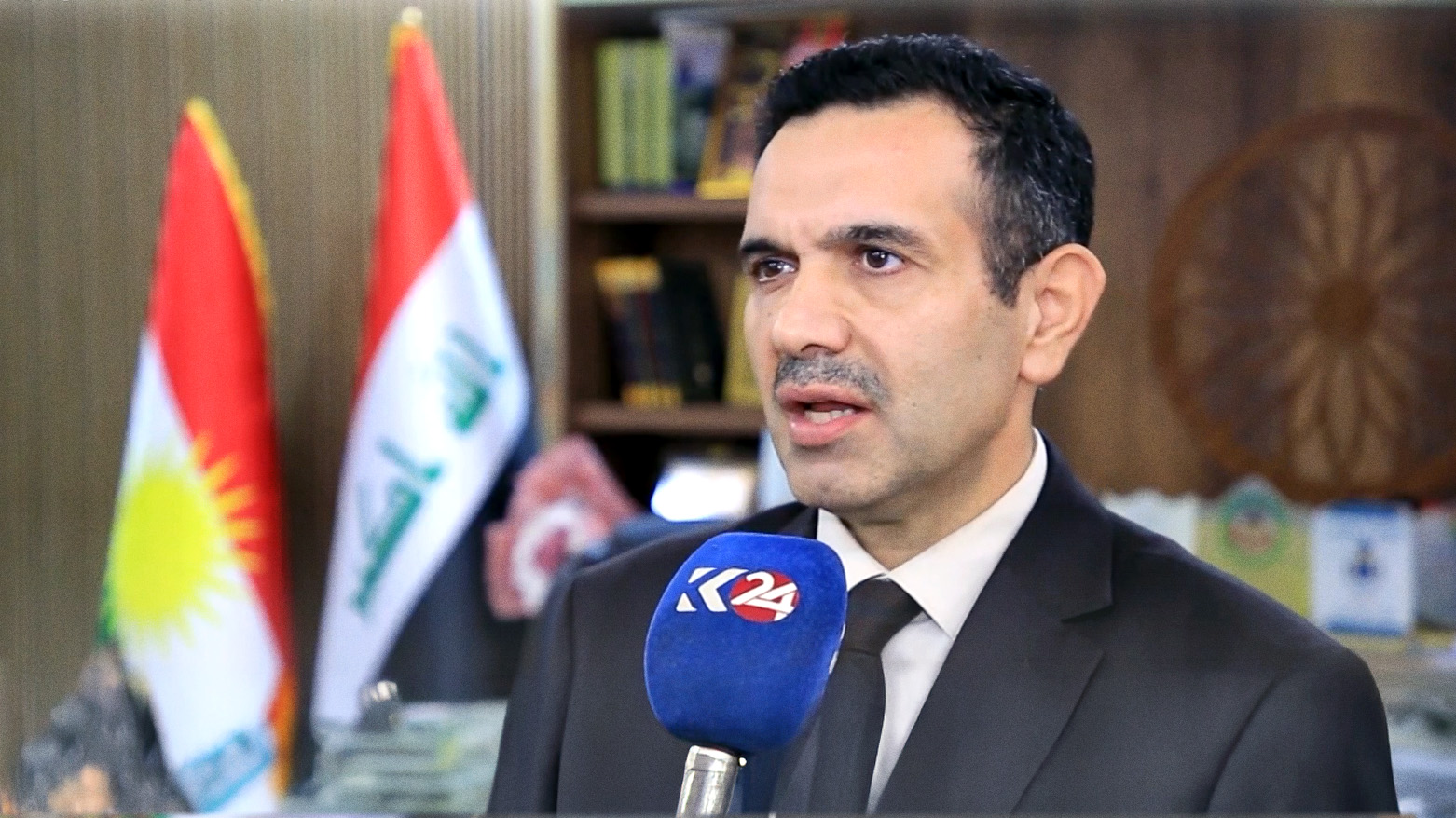Iraq’s Education Ministry Decision Deepens Crisis in Kurdish Schools in Kirkuk
The Iraqi Ministry of Education’s decision comes only weeks before the start of the new academic year, leaving schools and students without any alternative solutions.

ERBIL (Kurdistan24) — A recent decision by Iraq’s Ministry of Education to remove caravan classrooms has triggered a severe crisis in more than 50 Kurdish schools across Kirkuk province, where a lack of infrastructure has forced reliance on such facilities.
At one school, nearly 100 Kurdish students were studying in three caravan classrooms made of sandwich panels, which the federal ministry has now banned.
Kurdish education director in Kirkuk, Kameran Ali, told Kurdistan24 that between 50 and 60 schools are dependent on caravan classrooms.
“Some schools cannot accept first-grade students anymore because of the shortage of space. This issue requires urgent solutions,” he stressed.
Similarly, Salar Nuraddin, principal of Tawispy School, noted that the caravans had been used during examinations but were now ordered to be removed.
“I had requested in advance that these caravans remain because we need them. If they are dismantled, it will create a very serious problem for our school,” he said.
The ministry justified the decision on safety grounds, citing the risk of fire accidents. However, the move comes just weeks before the official academic year begins, leaving schools and students with no alternative arrangements.
For years, Iraq’s chronic failure to build enough schools has forced urban administrations to rely on temporary caravans to accommodate rising numbers of students. But by abruptly dismantling these structures without providing replacements, Baghdad has only compounded the crisis.
The Kirkuk caravan classroom crisis is only the latest example of the Iraqi federal government’s pattern of wrongful decision-making and mismanagement across sectors.
Baghdad has long failed to invest in sustainable infrastructure for education, health, and public services.
In education, particularly, Iraq faces one of the highest classroom shortages in the region, with overcrowded schools running multiple shifts per day. Instead of expanding capacity, the central government’s decision to remove caravan classrooms reflects short-term thinking that punishes students rather than protecting them.
This mismanagement is emblematic of Baghdad’s broader governance failures — from electricity and healthcare to urban planning and economic diversification.
Each sector has been marred by corruption, lack of vision, and disregard for local needs, especially in disputed territories like Kirkuk, where Kurdish communities often bear the brunt of the central government's malicious policies.
In practice, Baghdad’s decisions have widened the education gap, weakened opportunities for Kurdish students, and further eroded trust in federal institutions.
The dismantling of caravans in Kirkuk is not just about classrooms — it is a stark reminder of how the Iraqi government’s wrong-headed policies continue to damage future generations.
Hemin Dalo, Kurdistan24 correspondent in Kirkuk, contributed to this report.